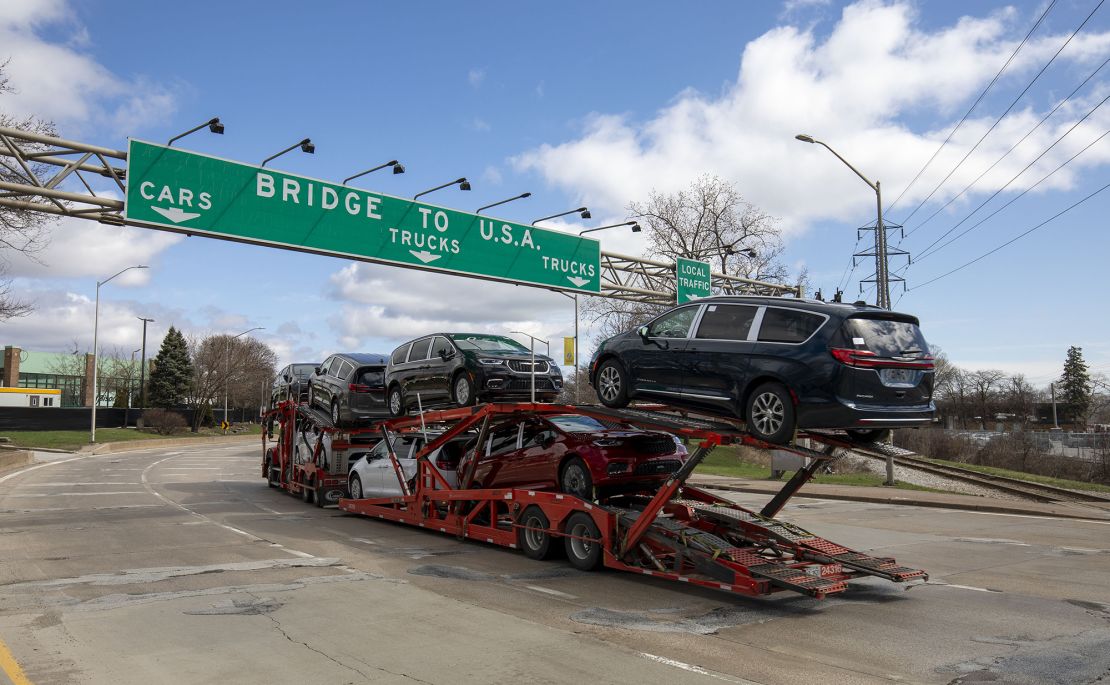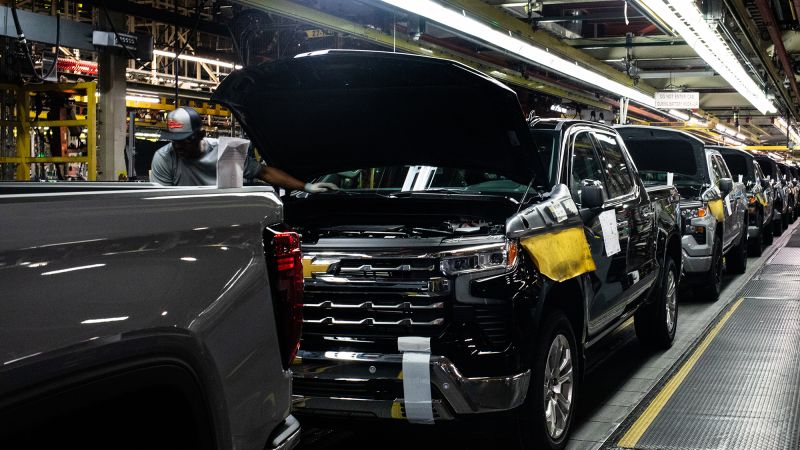CNN
—
The average car buyer doesn’t think about where the parts in their vehicle come from – but automakers do.
That’s why a new round of auto tariffs – this time on parts – coming into effect Saturday could upend the industry, even more than previous levies on imported cars.
As of 12:01 am ET on Saturday, most auto part imports will come with a 25% import tax.
The previous auto tariffs left US-made cars untouched. Not anymore. Not a single of the 10 million cars turned out by US plants last year was built without at least some imported parts. The tariffs on parts could now mean tens of billions of dollars in new cost to the industry – and eventually to American car buyers and owners.
“Frankly, from my perspective, (the parts tariffs) looks worse for the broader economy than the tariffs on imported vehicles,” said Jonathan Smoke, chief economist at Cox Automotive, at an Automotive Press Association webinar this past week.
More than 50% of the content of cars assembled in American auto plants is imported, according to the government’s own estimates. But the tariffs won’t apply equally to all those imports.
For example, parts from Canadian or Mexican suppliers who pay their workers $16 or more an hour are deemed “compliant” with the US-Mexico-Canada Agreement, a trade deal negotiated during the first Trump administration. That means most Canadian parts are exempt from tariffs, but relatively few Mexican parts.
And as of last week, automakers assembling cars in the United States will be able to offset part of the parts tariff, at least temporarily. The White House said it would refund automakers up to 3.75% of price of the vehicle against their parts tariffs bill in the first year, sliding to 2.5% in the second year before being phased out in the third year.
But even with that refund, the added cost of tariffs could still come to an average of about $4,000 per vehicle, according to estimates derived from a CNN analysis of government trade data.

For car buyers, it might take awhile to see price hikes. General Motors CEO Mary Barra told CNN Thursday tariffs will cost her company between $4 billion and $5 billion this year, but she doesn’t expect car prices to change in the near term. Ford CEO Jim Farley told CNN on Wednesday that it would extend its “employee pricing” offer through July 4.
But everyday Americans will still see higher prices elsewhere, like the repair shop.
“The tariffs on parts that will lead to higher inflation in repair and maintenance and insurance which impact every American and not just the people thinking about buying a new imported vehicle,” Smoke said.
The recent change in the parts tariff rules means any car assembled in the United States with 85% “USMCA compliant” parts would essentially be tariff-free.
The problem is that virtually no vehicle meets that 85% threshold, according to analysis by Frank DuBois, a retired professor at American University’s Kogod School of Business.
That’s because automakers have been operating for decades as if North America is a single market, moving parts repeatedly across the US borders with Canada and Mexico with few if any tariffs.
Judging which content is actually domestic could be tough, as well, DuBois said, getting down to such minor points as where the oil and antifreeze come from.
Besides the $19.2 billion in imported Canadian components, most other imported parts will not be exempt.
For example, Mexico sent $82.5 billion in parts to the United States last year, by far the largest source of imported parts. But few of those are considered “USMCA compliant,” so most will have the tariff attached.
If current tariffs for auto parts (and additional levies for Chinese goods in general) had been in effect last year, the total price tag would have been about $60 billion. Even with the refund rules announced this past week would only have taken that bill down to $40 billion.
The parts refund, Smoke said, is just about “taking a bad situation and making it slightly less worse.”



